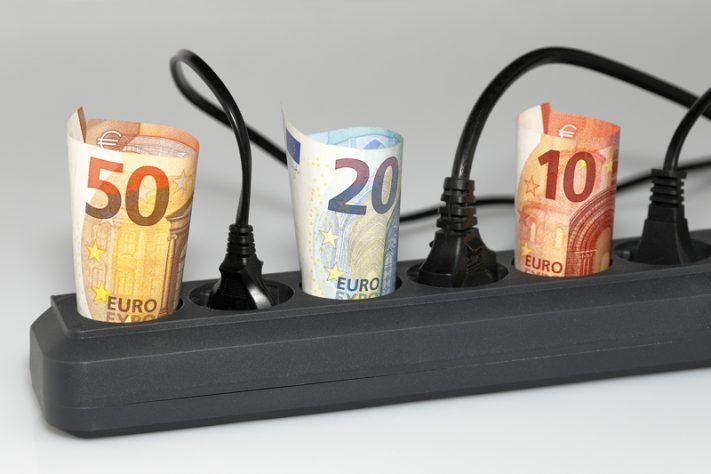Benchmark electricity prices in Europe fell on Monday and natural gas futures hit six-month lows after a new Atlantic storm boosted wind power output, Bloomberg reports.
On Monday morning, the reference prices for natural gas fell by up to 6.4%, reaching the lowest level since July. Also, in Germany and France, for several hours, electricity prices on the intraday market dropped below zero. These prices fall into negative territory when the supply of electricity is greater than the demand.
Strong winds brought by Storm Isha are causing problems for travel in northern Europe but also higher wind power production, which is good news for power supplies in the region after the recent cold snap. In parallel, some weather forecasts show unusually warm weather at the beginning of February, according to Agerpres.
As temperatures recover, demand for heating gas and electricity production should decrease. This combined with the high level of storage filling, the modest demand for gas from the industrial sector and the abundant supplies should keep energy prices under control, after the recent increase.
According to Bloomberg calculations, wind energy production in Germany would reach a new all-time high on Monday, surpassing the previous record set before Christmas.
Under these conditions, electricity prices in intraday market transactions dropped on Monday to minus 14.88 euros for a Megawatt-hour in Germany and to minus 15.20 euros for a Megawatt-hour in France, according to data from Epex Spot, one of the largest energy exchanges in Europe.
In parallel, at around 9:10 a.m., at the TTF gas hub in Amsterdam, where reference prices are set in Europe, natural gas futures quotes for next month delivery were down 5.3%, up to 26.93 euros for a Megawatt-hour.
This decline comes despite the fact that tensions in the Middle East are still high, a factor that triggered a rise in gas prices in October.
“Reference natural gas prices on the European market have fallen significantly, mainly because this winter has been, on the whole, milder than normal. Europe should get through the winter with enough gas in storage,” say analysts on energy from Citigroup Inc., Anthony Yuen and Maggie Xueting Lin.
